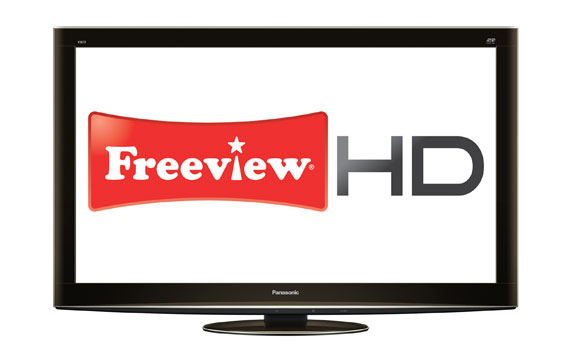DTT delivers £80bn to UK economy
January 20, 2014
By Colin Mann
 A report commissioned by Digital UK – the company that manages strategy and policy for digital terrestrial television (DTT) in the UK – reveals the major economic benefits that Freeview and other terrestrial TV services deliver to the UK.
A report commissioned by Digital UK – the company that manages strategy and policy for digital terrestrial television (DTT) in the UK – reveals the major economic benefits that Freeview and other terrestrial TV services deliver to the UK.
The report – The value of Digital Terrestrial Television in an era of increasing demand for spectrum – shows that the country’s most widely used platform returns nearly £80 billion to the economy and challenges the view that mobile broadband delivers more value from airwaves than television.
The findings come at the start of a year when crucial decisions about the future of free-to-air TV will be made by policy makers in the UK and EU. Just over a year after digital switchover freed up capacity for 4G mobile broadband, a further shake-up of the airwaves is being considered to release more spectrum for the mobile market.
The report – carried out by media and telecoms consultancy Communications Chambers – sets out for the first time the economic and social importance of DTT which delivers broadcast channels for both Freeview and YouView – and is watched in three-quarters of UK homes.
Key findings include:
- Evidence of DTT’s vital role in supporting UK broadcasting, driving innovation and investment in programme-making while keeping consumer costs down
- DTT provides nearly £80 billion to the UK – significantly more than previously estimated – and supports 15,000 jobs in broadcasting and independent production
- New economic analysis showing that DTT delivers more value per unit of spectrum than mobile broadband
- As the largest free-to-air TV service, DTT creates healthy competition between platforms and ensures viewers can access public service channels without subscription
Other key points:
- Mobile already has a far greater allocation of spectrum than DTT, occupying 560 MHz vs 256 MHz
- Video is a key driver of mobile data growth, which has a much lower value per MB or MHz than web or email
- The increasing availability of free WiFi means mobile networks only carry 18 per cent of mobile device traffic
- Voice creates most of mobile’s value yet uses little network capacity – Ericsson estimate 5 per cent in Western Europe
Digital UK and its members (BBC, ITV, Channel 4 and Arqiva) are urging government to ensure any further transfers of airwaves do not weaken Freeview and other terrestrial TV services, and that viewers should not suffer disruption or foot the bill for making the changes.
According to Jonathan Thompson, Chief Executive of Digital UK, the report sheds new light on the value of DTT for viewers, the UK television sector and wider economy. “With increasing demand for spectrum it is critical that DTT remains a strong proposition with the same coverage and range of channels viewers enjoy today,” he asserted.
